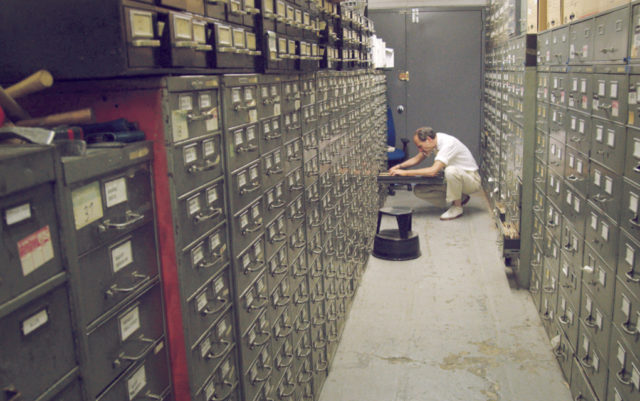
How do you sum up a life in 500 words? That’s the problem Bruce Weber, veteran obituary writer for the New York Times, faces every morning at 9. Weber’s desk is cluttered with biographies and memoirs ranging from Keith Richards’s Life to basketball coach Phil Jackson’s The Last Season, all there for research purposes. On some days he covers entertainers, on others he covers world figures. Today, Weber is working on an obituary for William P. Wilson, an unknown name to most but one whose shadow has cast a long legacy in politics.
As Weber discovers, and us with him, Wilson was Senator John F. Kennedy’s TV aide for the historic 1960 debate between Kennedy and Vice President Richard Nixon. It was Wilson who selected the thin pole lectern that favored Kennedy’s tailored suit. It was Wilson who applied make-up to Kennedy’s already tan visage. And it was Wilson who gave the estimated 70 million viewers at home a visual of what a president should look like. Many believe this was the moment that swung the election in Kennedy’s favor, which is in no small thanks to Wilson’s personal touches. Those touches have rippled forth, making it safe to say that Wilson, either wittingly or not, made a significant contribution to modern politics.
Again, how to convey that in 500 words?
That’s what Weber and the team behind the New York Times obituary department are up against, and in the new documentary from Vanessa Gould, Obit, that job looks both stressful and like a hell of a lot of fun. Sure, the day-in-day-out job of writing about death certainly puts one in touch with their mortality, but this team of five writers, two editors and two archivists are not actually concerned with death, but with life. While the rest of the Times reporters gather all the news that’s fit to print, these writers provide the history that informs the rest of the paper.
Obit, which is executive produced by Boulder filmmaker Pamela Tanner Boll, not only places a face to the obituary bylines, it walks the audience through the ins and outs of the obituary game. From a visit to the Times’ morgue, where old clippings and pictures are stored for future obituaries, to the meetings where it is decided which obituaries will run. Some talk about how they construct their obituaries — Margalit Fox gives a particularly colorful breakdown of how she wrote about a typewriter repairman — while others talk about the nuts and bolts of the job.
If nothing else, Obit shows the hard work these writers go through to get these articles right. For many, these words will be the last line of their lives; a task these writers do not take lightly. While the Times has roughly 1,700 obituaries written in advance for notable figures, the true work of the job happens when a name hits the desk at 9 in the morning. Sometimes that person had one of the biggest hands in the political landscape of the last 55 years. That’s all the history that’s fit to print.
On the Bill: Obit. Opens May 26. Landmark Mayan, 110 Broadway, Denver, 303-744-6799, landmarktheatres.com/Denver. May 31–June 3, The Boedecker, 2590 Walnut St., Boulder, 303-440-7825, thedairy.org.














